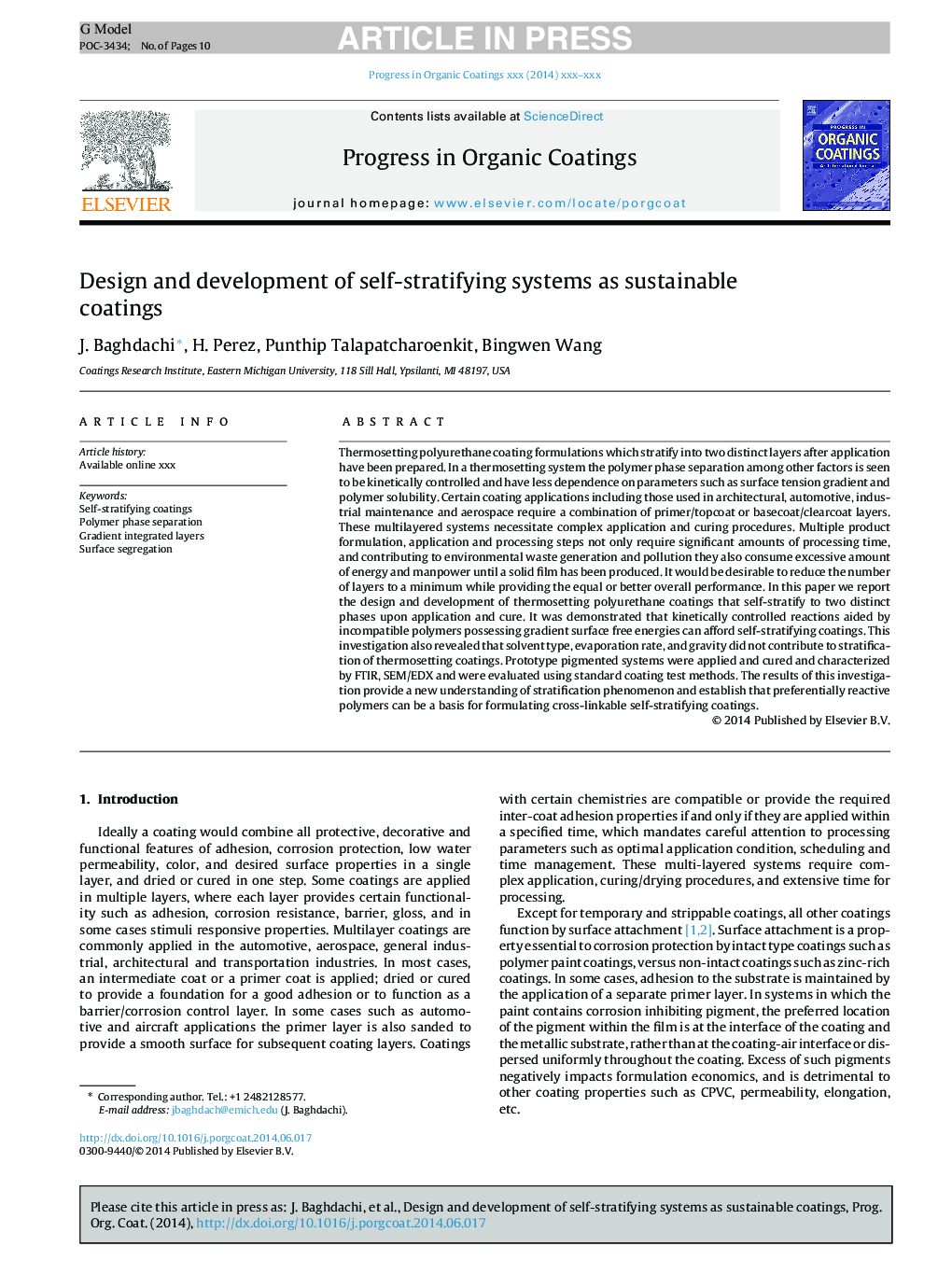| Article ID | Journal | Published Year | Pages | File Type |
|---|---|---|---|---|
| 7106950 | Progress in Organic Coatings | 2015 | 10 Pages |
Abstract
Thermosetting polyurethane coating formulations which stratify into two distinct layers after application have been prepared. In a thermosetting system the polymer phase separation among other factors is seen to be kinetically controlled and have less dependence on parameters such as surface tension gradient and polymer solubility. Certain coating applications including those used in architectural, automotive, industrial maintenance and aerospace require a combination of primer/topcoat or basecoat/clearcoat layers. These multilayered systems necessitate complex application and curing procedures. Multiple product formulation, application and processing steps not only require significant amounts of processing time, and contributing to environmental waste generation and pollution they also consume excessive amount of energy and manpower until a solid film has been produced. It would be desirable to reduce the number of layers to a minimum while providing the equal or better overall performance. In this paper we report the design and development of thermosetting polyurethane coatings that self-stratify to two distinct phases upon application and cure. It was demonstrated that kinetically controlled reactions aided by incompatible polymers possessing gradient surface free energies can afford self-stratifying coatings. This investigation also revealed that solvent type, evaporation rate, and gravity did not contribute to stratification of thermosetting coatings. Prototype pigmented systems were applied and cured and characterized by FTIR, SEM/EDX and were evaluated using standard coating test methods. The results of this investigation provide a new understanding of stratification phenomenon and establish that preferentially reactive polymers can be a basis for formulating cross-linkable self-stratifying coatings.
Related Topics
Physical Sciences and Engineering
Chemical Engineering
Process Chemistry and Technology
Authors
J. Baghdachi, H. Perez, Punthip Talapatcharoenkit, Bingwen Wang,
